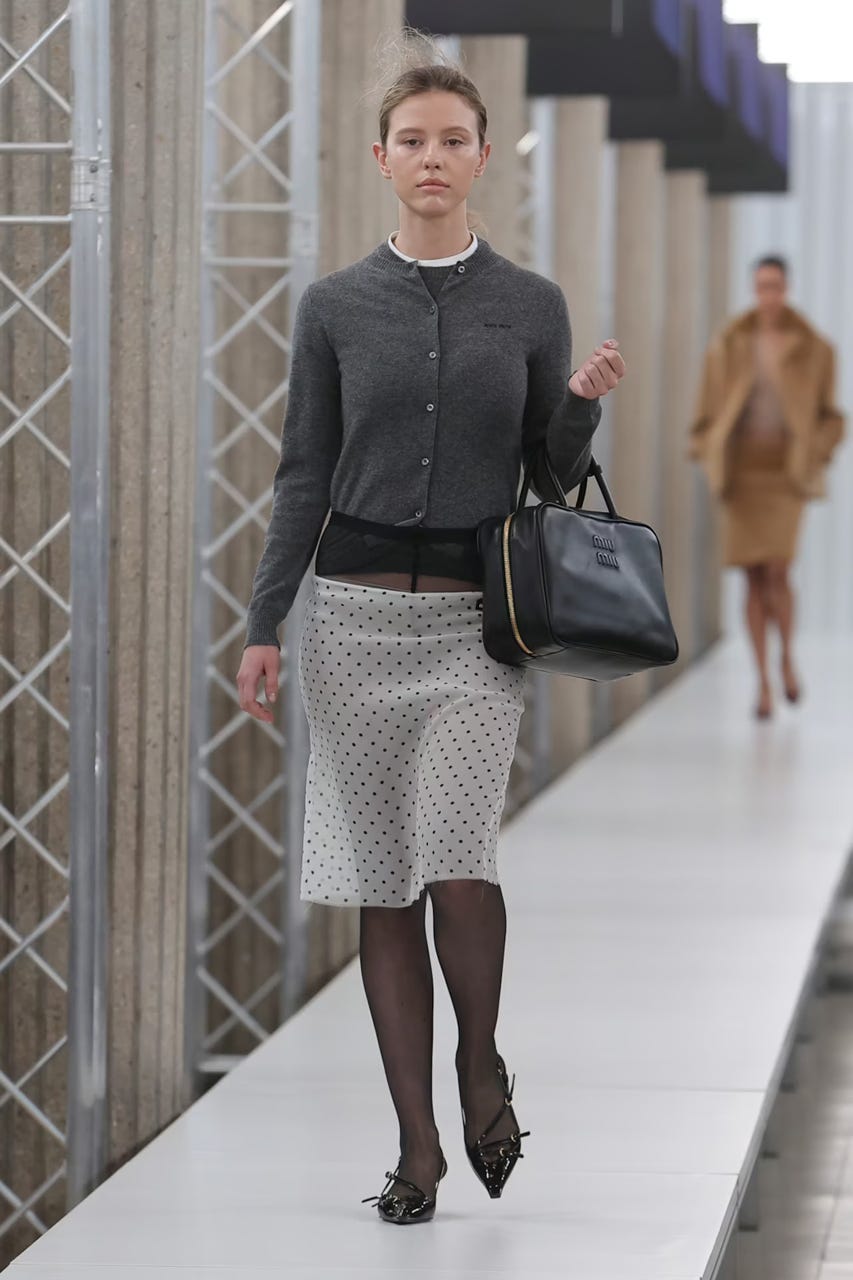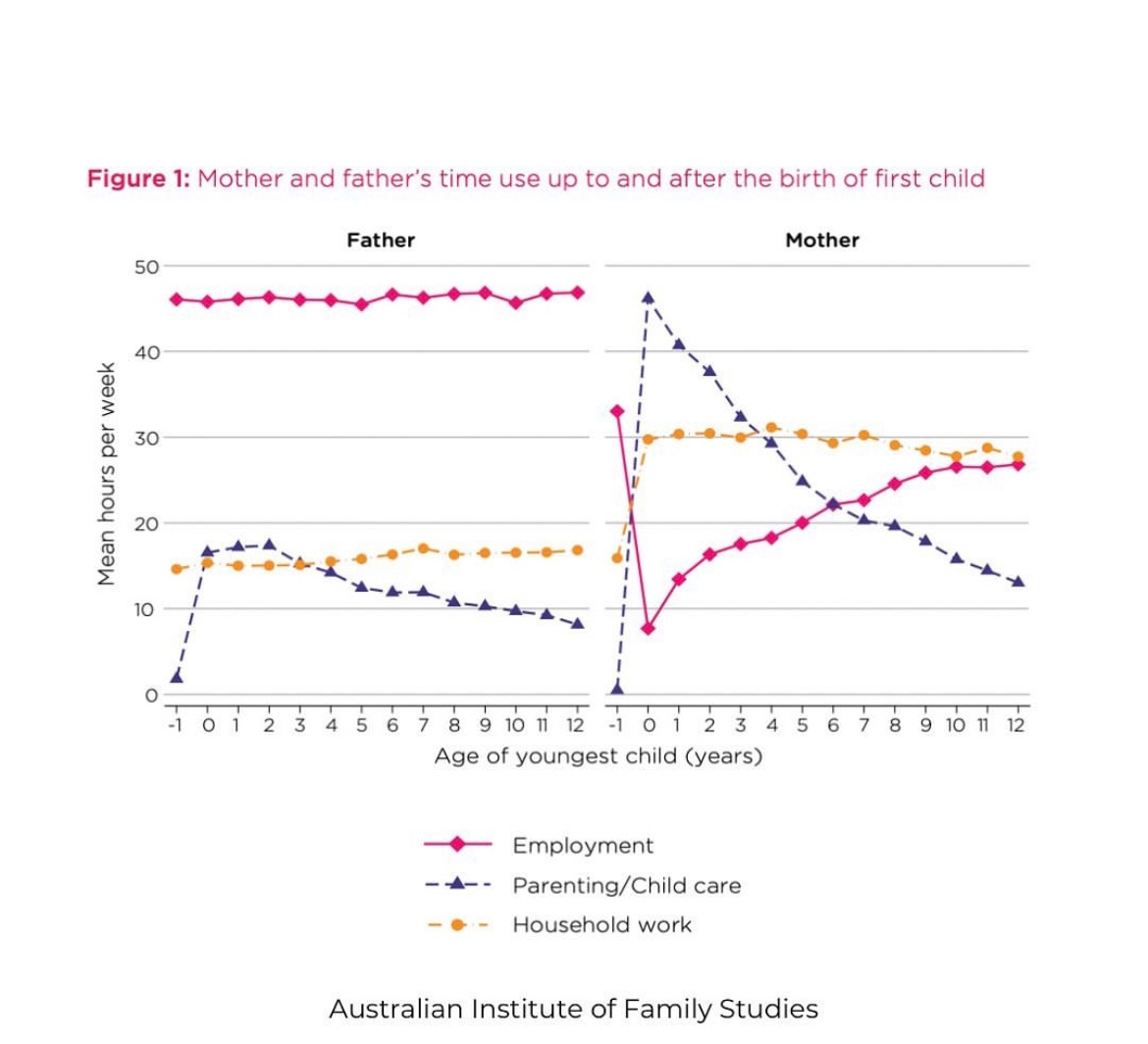Mothers work.
The history and changing opinions of stay at home mums and mothers who undertake paid work.
I rewrote that subheading so many times. Too many times. And I’m still not happy with it but I couldn’t quite describe what I wanted into one succinct sentence. Probably because there is just so much to say when it comes to mothers work both unpaid labour and paid employment, and if you follow Dear Dilate on Instagram then you would have seen the articles I shared on International Women’s Day on the pay gap, Australia’s Parenthood Trap (as Annabel Crab puts it) and unequal labour, which is now saved as a highlight. But let’s get into it…
If we look at the history of mothers entering the workforce, this dates back to the 1800s. Married women and mothers took on paid employment (for an astronomically low wage compared to their male peers) out of necessity. The purpose of work, for most, was to provide the bare essentials for the family due to husbands who were either deceased, unemployed or earning an inadequate wage. Men were supposed to be the breadwinners (an outdated gendered term that also needs retiring). When their earnings were insufficient to provide for the household, or if a mother became single and/or widowed, the public opinion was, as Helen McCarthy writes in her book Double Lives: A History Of Working Motherhood, that these women were "victims". She goes on to explain; 'Whatever the exact story behind the father's failure to provide for his household, the consequences seemed to be clear and were summarised neatly by Miss Sharples, a sanitary inspector from Leeds in 1906: "My own experience," she told a conference on infant welfare in London, "is that the great majority of married women who work outside their own homes do so not from choice, but from necessity."'
The term, working mother itself is a label given to those who take on paid employment by working outside the home. Historically, this has a negative connotation attached to it that was until it became in vogue around the 1970s which started to fetishise the modern juggle of work and motherhood. Championing mothers at work was far easier than adapting government schemes and employment procedures to support the rising rates of mothers at work which in Australia now sits at 74.7% for coupled families with children under the age of fifteen – why would they change? We are attempting to do it all with so little anyway. The hustle culture of working motherhood is becoming the norm. It’s packaged up as a glamourised juggle that is both achievable and aspirational, and comes with a complimentary Louis Vuitton Neverfull tote bag. Just as we saw the rise of the mum who can do it all, the pressure to be more than a mother has been amplified.
To help me understand the history of the terminology I reached out to Linguist, Malwina Gudowska who points out in our email exchange, "this term of ‘working mother’ has many different incarnations and interpretations because mothers have always worked, especially women from lower socioeconomic families, immigrant women, single parents. And yes, the term "working mother" today and the way it has changed over the years refers to a certain class of mothers, often white, and a way to differentiate between the paid work outside the home and the unpaid domestic labour in the home – both forms of work of course but one being valued and the other not.” The value of work and what we get out of it is now much more than a paycheque. We know from all the stories of mothers that a thriving career positively impacts our psychological health while acting as a reprieve from the monotony of motherhood, with most stating it makes them better mothers. That is not to say that this was not true of the past; this is my experience, those I have had many conversations with, and of many who we see celebrated in the media. Mostly mothers who are white, middle to upper class, an unearned leg-up that we are born with, and one that allows us the privilege to seek pleasure and the capital from vocation.
I often wonder if we placed a monetary amount on motherhood would I be more inclined to surrender to it in its entirety? Would I leap out of bed with joy in the middle of the night as my son calls out for the third time or patiently wait as he takes what feels like 100 years to sit in his carseat? I'm not sure, but I think it would help. For those who are thinking well, money can’t buy happiness, that is not completely true. A recent study as covered by The Washington Post concluded that “happiness continues to rise with income even in the high range of incomes.” And it would especially help the mothers who do not come from wealth, those who don't have grandparents or family close by, single mothers, those whose partners work long hours, and for those who, after household essentials, there is nothing left in the budget for paid childcare, including those with limited funds, time, education, and skills needed to allow them the luxury of starting and running a successful business which means taking on paid work outside of the unpaid domestic labour is not really an option or an almost impossible option. Let's make no mistake; motherhood is a job. And this is a factual albeit uncomfortable statement, especially when articulating this to those without kids and to fathers who "would love to stay home with the kids all the time."
Culturally, the opinion of mothers who work outside the home has shifted here in Australia, and that could be due to the cost of living, which is constantly on the rise and requires both parents to take on paid work; though unfairly enough, it is still the expectation that the responsibility of caring for a child and all the unpaid domestic labour that comes with it, predominantly falls on the shoulders of mothers (as illustrated in the graph below).
Malwina adds, "unpaid domestic labour is not seen as valuable as paid outside-of-the-home work even though one cannot happen without the other, ever. I think another part of this discussion is the complicated but also, problematic way that SAHM is also used, especially on social media. By identifying as an SAHM [Stay At Home Mum] in a profile, for example, is it promoting the idea of domestic labour as labour or the opposite? I don't know the answer and it depends on the person of course and the situation but I know this is something that comes up in discussions on social media mom influencers and often also goes back to how to monetise the role of SAHM because domestic labour is so undervalued normally. I think it's an interesting discussion that is a bit cyclical because it is no longer clear what 'working mother' or 'SAHM' really mean and which ones have negative connotations, positive ones or both/neither."
Money aside, mothers who start something new for ambition, creativity, solitude or pleasure do so as a pursuit after hours. A hobby that has the potential to be a 'side hustle'. In other words, a hobby that needs to offer a return on investment and the time taken away from her role as the primary carer. Mothers often don't have the time for a hobby just for the fun of it, whereas plenty of fathers, on the other hand take up golf, road cycling, surfing, and train for triathlons – all activities that are costly in both time and money, and they do so for the sheer joy of it. For mothers to take time away from their role as the angel of the house – we sure as hell better be making bank by doing it, and if it is something she loves, then that's even more advantageous. Governments can continue to ignore the desperate need for more support systems for all mothers. They can continue to ignore her screams because she did choose to become a mother and work outside of the home… and she loves it!
Labels don't do any of us any favours, and opinions vary depending on who you ask. There is nothing wrong with being a mother working full-time for income or pleasure or both. There’s also nothing wrong with being a stay-at-home mother, whether by choice or out of necessity or a blend of the two. There is however, something terribly wrong with the way we continue to expect the invisible labour of mothers to be selfless, sacrificial and free, and only once we deviate from this narrative, then perhaps we can have a real conversation and progress towards mothers work becoming paid work.







The headline is perfect, as is everything else that follows it. So well put, Jade.
I'm so interested in how mothers who are exhausted, under-appreciated, or fed up respond to their situation. Do they take off for re-cooperating vacations too often? Have affairs? Check out of their role? Hunker down and turn off their passions to stay in line with the expectations put on them? great piece. :)